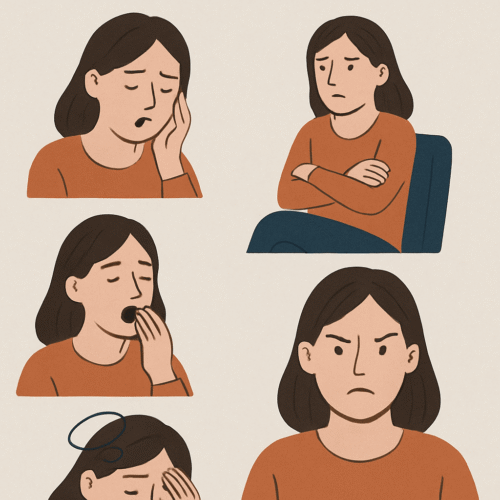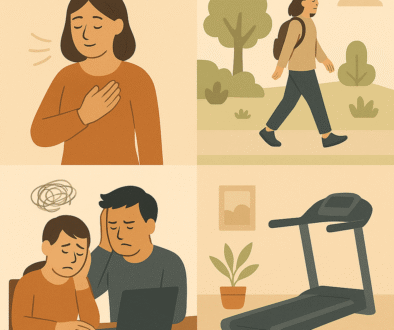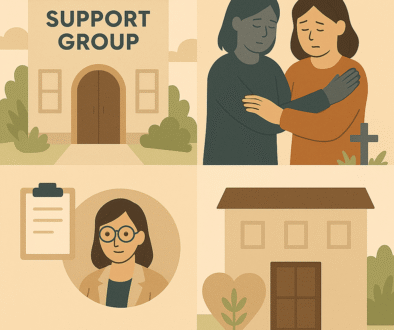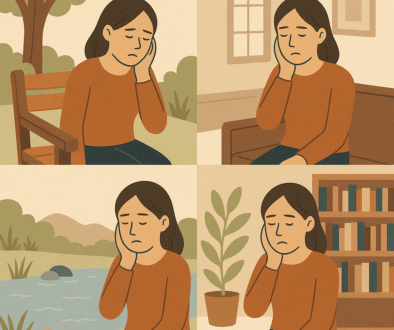5 Signs of Anxiety You Shouldn’t Ignore
Anxiety’s one of those things most people brush off at first. A bit of worry here, some stress there—it feels normal. And to be fair, a certain level of anxiety is normal. It’s when that feeling starts running the show that it becomes a problem.
You might be wondering, “But how do I know if what I’m feeling is just everyday stress or something more?” Let’s go through five of the most common signs of anxiety things to watch for that can tell you it might be time to talk with someone.
1. Constant Worry That Won’t Switch Off
Everyone worries, but anxiety makes it hard to stop. It’s like your brain is on a loop, circling the same thoughts over and over. You might find yourself stressing about the future, replaying past mistakes, or imagining worst-case scenarios.
If you notice this happening most days, and it feels hard to focus on other things, that’s a strong sign anxiety could be playing a role.
- Related read: How to Know if You Need Counselling
2. Physical Symptoms You Can’t Explain
Anxiety doesn’t just live in the mind it shows up in the body too. Common physical signs include:
- Tightness in your chest
- A racing heart or palpitations
- Sweaty palms
- Trouble sleeping
- Feeling restless or on edge
Sometimes people even think they’re having heart problems when it’s really anxiety at work.
3. Avoiding Certain Situations
Do you find yourself avoiding people, places, or situations because they make you feel uneasy? Maybe it’s social gatherings, driving, or even going to work.
Avoidance might bring short-term relief, but it also keeps anxiety going long-term. Over time, your world can shrink, and life starts feeling smaller and more stressful.
- If you’re curious about what counselling sessions look like, check out What to Expect in Your First Counselling Session.
4. Trouble Sleeping or Resting
Sleep and anxiety don’t mix well. You might lie in bed with your mind racing, or wake up at 3am and struggle to fall back asleep. Even during the day, you may find it hard to rest, always feeling like you “should” be doing something.
This constant state of alertness drains your energy and makes anxiety worse it’s a tough cycle to break.
5. Anxiety Interfering With Daily Life
Here’s the big one: is anxiety stopping you from living the life you want? That could mean:
- Missing out on social events
- Struggling to perform at work or uni
- Feeling distant in your relationships
- Constantly battling a sense of dread
If your anxiety is interfering with your day-to-day wellbeing, that’s a clear sign it’s worth getting some help.
- You might like this article too: How Many Counselling Sessions Will I Need?
When to Reach Out
It’s normal to feel nervous or stressed sometimes, but anxiety that sticks around and affects your health isn’t something you need to just “push through.” Counselling can help you understand what’s driving your anxiety and give you tools to manage it better.
If you’re noticing these signs, talking to a professional could make a real difference. Even one conversation can start to lighten the load.
For more perspective, you might also like reading 5 Signs You Might Need Counselling.
Take the Next Step
You don’t have to figure this out on your own. If you’ve seen yourself in any of these signs, reaching out could be the first step toward feeling lighter and more in control.
At Luma Counselling Christchurch, we offer a safe, supportive space to work through anxiety and whatever else you’re carrying.



